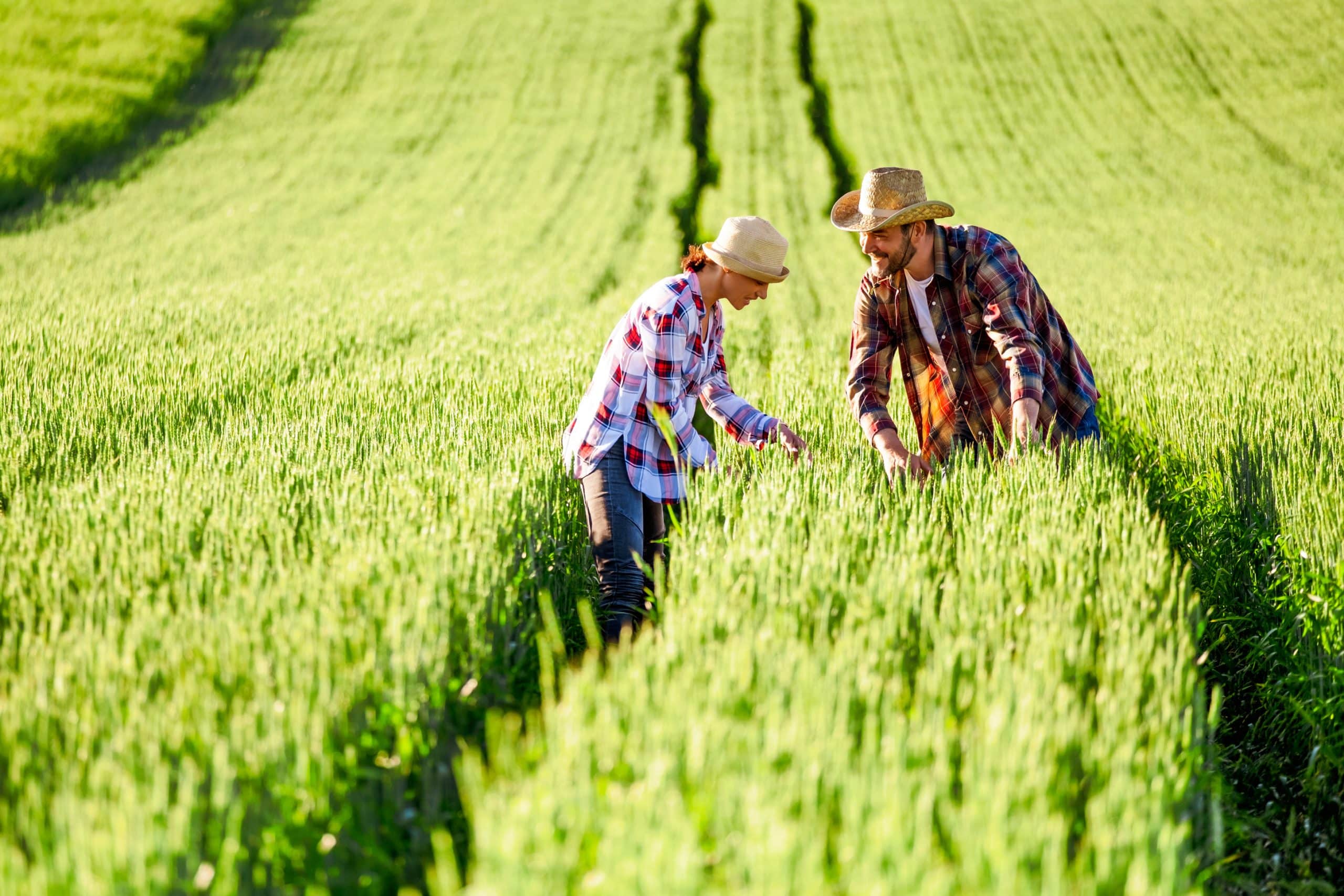Can AI-Based Soil Analysis Apps Help UK Farmers Optimize Crop Selection?

As we hurtle into the future, the agricultural sector is not exempt from the grip of technological advancement. One of the most intriguing advancements is the use of Artificial Intelligence (AI) in farming. Specifically, the development of AI-based soil analysis apps has been a game-changer. But are these apps truly beneficial in helping farmers, particularly those in the UK, choose the best crops for their soil? Let’s dive into this fascinating topic.
The Basics of Soil Analysis
Understanding soil analysis is key to grasping the potential advantages of AI-based soil analysis apps. Essentially, soil testing provides vital information that can guide farmers in managing their soil effectively. It allows them to determine the type and amount of nutrients their soil contains, which in turn, can help them choose the most suitable crops to grow.
A découvrir également : How Can AI Assist in the Early Detection of Urban Water Leakage and Infrastructure Damage?
Traditional soil testing methods involve taking soil samples and sending them to a lab for analysis. This process can be time-consuming and costly. However, technological advancements, particularly AI, offer a faster and more efficient alternative.
AI-Based Soil Analysis Apps – How Do They Work?
AI-based soil analysis apps leverage technology to provide instant, accurate information about the soil’s health. They use intricate algorithms and machine learning to analyze the soil and predict its suitability for different types of crops.
A lire en complément : Can AI-Based Smart Monitoring Systems Reduce Energy Consumption in Data Centers?
To use these apps, a farmer simply takes a picture of the soil using their smartphone. The app then processes this picture, analyzing factors such as soil color, texture, and structure. Based on this analysis, the app can provide a wealth of information, including the soil’s pH level, nutrient content, and more.
Another critical component of these apps is their ability to learn and improve over time. They use machine learning, a branch of AI, to enhance their algorithms based on the data they collect. This means that the more they are used, the more accurate and helpful they become.
The Impact on Crop Selection and Yield
The benefits of these AI-based soil analysis apps can be substantial when it comes to crop selection and yield. By being able to quickly and accurately assess their soil’s health, farmers can make more informed decisions about which crops to plant. Certain crops prefer specific soil conditions, and being able to match the crop to the soil can lead to a significant increase in yield.
Moreover, these apps can help farmers manage their soil more effectively. For example, if the soil is lacking a certain nutrient, a farmer can take steps to rectify this before planting. This not only optimizes the soil’s health, but it also increases the chances of a successful, bountiful harvest.
The Potential for UK Farmers
UK farmers face unique challenges. The UK’s temperate climate, varying soil types, and strict agricultural policies necessitate a precise, data-driven approach to farming. This is where AI-based soil analysis apps can play a role. They offer UK farmers a high-tech solution to maximize their crop selection and yield.
For instance, in regions with heavy clay soil, such as the East Midlands, farmers may struggle with soil compaction and poor drainage. An AI-based soil analysis app can quickly identify these issues, allowing farmers to select crops that thrive in these conditions or take steps to improve the soil.
Similarly, in areas with sandy soil, like East Anglia, nutrients can easily be washed away by rain. Again, an AI-based app can identify this issue and suggest appropriate crops or soil amendments.
The Future of AI in UK Agriculture
The potential of AI in UK agriculture extends far beyond soil analysis apps. AI can be used in various other aspects of farming, from predicting weather patterns to controlling pests, managing water use, and monitoring crop health.
In a world where climate change and population growth are putting increasing pressure on agriculture, the need for smart, sustainable farming methods is more crucial than ever. AI offers a promising solution, and its use in UK farming is only set to increase.
However, it’s important to remember that while AI can offer incredible insights and recommendations, it’s ultimately down to the farmer to make the final decision. AI is a tool, not a substitute for a farmer’s knowledge and intuition.
The use of AI-based soil analysis apps in UK farming is still in its early stages. However, their potential to optimize crop selection and maximize yield is indeed significant. As these apps continue to develop and improve, they could become an indispensable tool for UK farmers.
Indeed, the future of farming is looking increasingly digital, and those who embrace these changes may well reap the rewards. AI is not just a passing trend in agriculture. It’s an innovative solution that can help farmers around the world, including those in the UK, to farm more effectively and sustainably. It’s a brave new world and, for farmers, it’s filled with exciting possibilities.
Harnessing AI for Sustainable Farming Practices
Harnessing the power of AI-based soil analysis apps can pave the way for more sustainable farming practices. AI, with its ability to gather and interpret vast amounts of data, can help farmers manage their resources more efficiently. This involves not only selecting the best crops for the soil but also determining the optimal time for planting, fertilizing, and harvesting.
For instance, a soil analysis app can provide farmers with real-time information about their soil’s nutrient levels. If the soil is deficient in a particular nutrient, the farmer can add just the right amount of fertilizer to correct the deficiency. This not only improves crop yield but also reduces the amount of fertilizer that gets washed into nearby waterways, contributing to more sustainable farming.
Similarly, by providing accurate predictions about the weather and soil conditions, these apps can help farmers decide the best time to plant and harvest their crops. This can lead to more efficient use of water resources, another critical aspect of sustainable farming.
For UK farmers, this could be especially beneficial. The UK’s varied climate and soil conditions require precise management of resources. AI-based soil analysis apps can provide this precision, helping farmers to maximize their yield while minimizing their environmental impact.
Conclusion: Embracing the AI Revolution in UK Farming
In conclusion, AI-based soil analysis apps offer an exciting opportunity for UK farmers to optimize their crop selection and yield. These high-tech tools can provide a wealth of instant, accurate information about soil health, enabling farmers to make informed decisions about their farming practices.
Moreover, these apps have the potential to contribute to more sustainable farming. By helping farmers manage their resources more efficiently, they can reduce environmental impact while improving productivity.
However, it’s important to stress that these apps are just one piece of the puzzle. They are a tool that can greatly aid farmers, but they are not a substitute for human judgement. The knowledge, experience, and intuition of the farmer remain invaluable.
The world of farming is rapidly changing, with technology playing an ever-increasing role. For UK farmers, embracing this change could be the key to future success. The use of AI in agriculture is not just a passing trend; it’s a revolution that can help farmers work smarter, not harder.
As we look to the future, it’s clear that AI has a significant role to play in UK agriculture. The potential of AI-based soil analysis apps is just the tip of the iceberg. With advancements in technology, who knows what other innovative solutions are on the horizon? What is certain, though, is that for those willing to embrace the AI revolution, the future of farming holds exciting possibilities.
